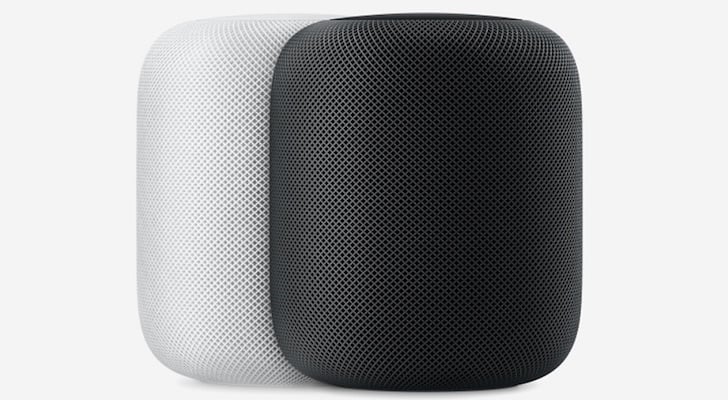When Apple Inc. (NASDAQ:AAPL) finally hit store shelves in February, it was not only late to the smart speaker party, but it had missed AAPL’s own previously announced release date. And it arrived missing a key feature — support for stereo pairing and multi-room audio. With its latest iOS update, Apple finally introduced AirPlay 2, which includes that promised multiple speaker capability for the HomePod. The question is, does it matter? Will two or more of these $349 speakers working together boost soft HomePod sales?
It’s a big question, because with a booming smart speaker market and stagnating smartphone sales, AAPL stock could use a HomePod boost.
AirPlay 2 Delivers Promised Functionality
AAPL first announced the HomePod, its long-awaited smart speaker, a year ago, in June 2017.
However, it wouldn’t be available until December. That holiday season was a critical one for smart speaker sales as consumers snapped them up. Alphabet Inc.’s (NASDAQ:GOOGL) Google Home and Amazon.com’s (NASDAQ:AMZN) Echo smart speakers combined for sales of nearly 16.4 million units during that time alone. But Apple notched zero HomePod sales, because the company missed its December launch date. Needless to say, AAPL stock got no HomePod bump in 2017.
Apple finally got the HomePod onto store shelves this February, but it was missing two key features: multi-room audio and stereo pairing.
On May 29, AAPL began rolling out iOS 11.4, with AirPlay 2. This software update finally delivers on the promised multiple speaker functionality promised for the HomePod. Owners can now wirelessly pair two HomePods for stereo sound. And they can scatter a collection of Apple smart speakers throughout their home for multi-room audio.
Now that Apple’s smart speaker has all of its promised functionality, will that be enough to hook consumers who have been largely ignoring it?
HomePod Sales Face Additional Obstacles
Initial reviews of the new features are in, and they’re generally positive. In particular, the stereo pairing is noted to offer more volume and a boost to the already impressive bass performance. Multi-room audio works as advertised. However, these features aren’t unique to Apple’s smart speaker — at this point they’re pretty much an expected functionality. So consider AAPL caught up, as opposed to taking the lead here.
Unfortunately, AirPlay 2 doesn’t fix the HomePod’s other problems…
First and foremost is the $349 price. It’s actually $50 less than Google’s big smart speaker –the $399 Google Home Max (which did make its December release date) — but Google offers a range of smart speakers, starting at just $39. The same with Amazon and its Echo smart speakers. Premium models like HomePod and Google Home Max are great options for music lovers with deep pockets, but are simply too expensive for mass market adoption.
Another key challenge is Siri, which is underwhelming on the HomePod compared to what consumers expect after using Alexa on the Amazon Echo or Google Assistant on the Google Home. As a smart speaker, the HomePod just isn’t that smart compared to the competition.
Then there’s Apple Music. Apple fans will undoubtedly have an Apple Music subscription. But the leading streaming music service is from Spotify Technology S.A. (NYSE:SPOT) and unlike the competition, the HomePod doesn’t offer built-in Spotify support. Just Apple Music.
To this point, HomePod sales have been disappointing, and far from living up to the potential of being an AAPL stock driver. The smart speaker market is big and rapidly getting bigger. But Apple is late to the party and at this point has captured just an estimated 3% of the market. Finally delivering the promised multiple speaker capability may give HomePod sales a nudge, but AAPL is unlikely to rise above being a niche player in the smart speaker market unless it deals with those other issues: price, Siri and Apple Music lock-in.
As of this writing, Brad Moon did not hold a position in any of the aforementioned securities.

